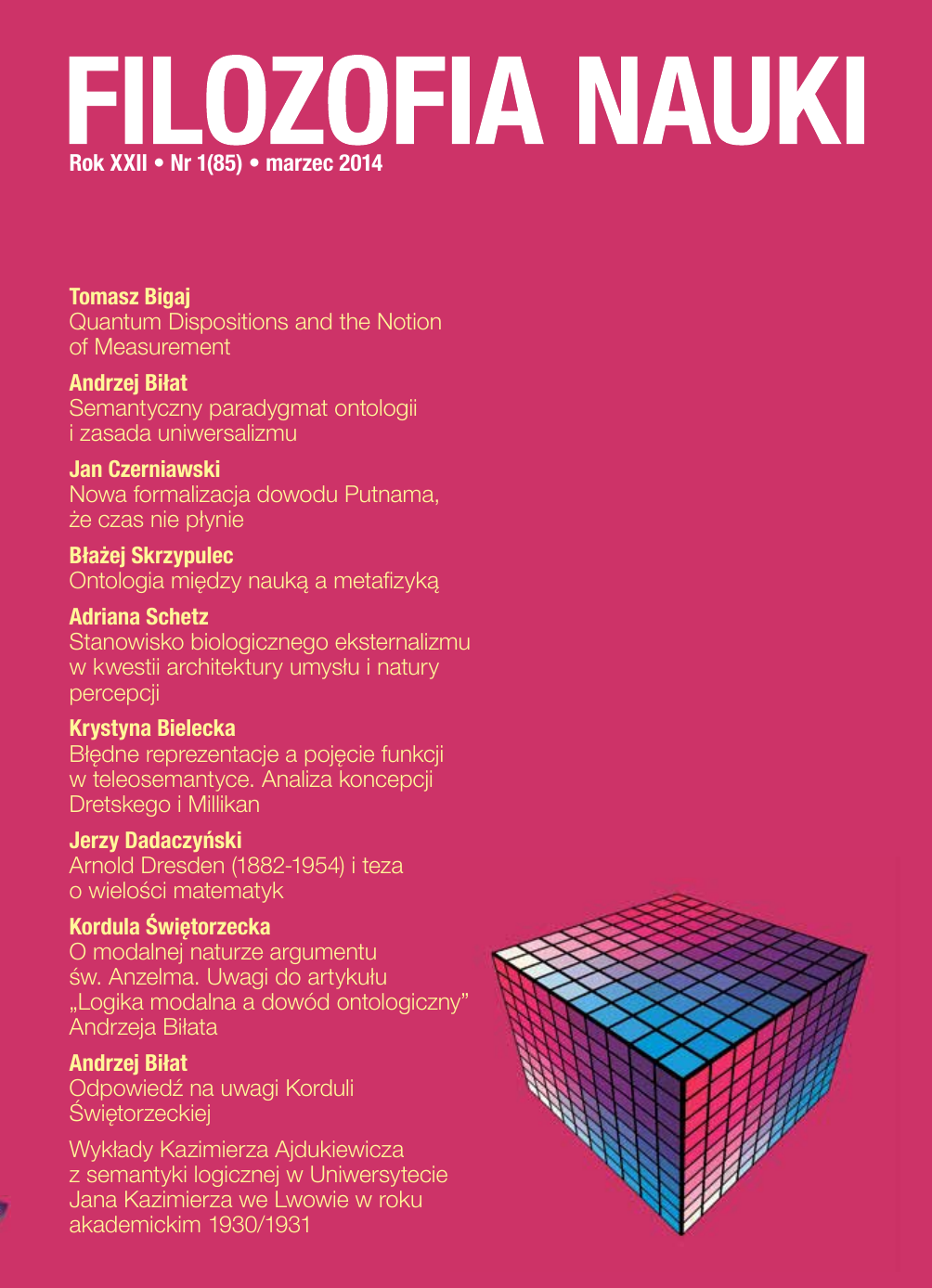Semantyczny paradygmat ontologii i zasada uniwersalizmu
Słowa kluczowe:
Aristotle, Christian Wolff, Thomas Reid, Anna Wierzbicka, notiones generales, ontological concepts, semantic universals, discursive languagesAbstrakt
The article concerns the paradigm of ontology based on the principle that there is a universal conceptual scheme determining the general structure of the world. The main goal of the article is to set this principle in the context of the history of philosophy, to clarify it, and to evaluate its credibility in the context of modern ethnolinguistics. It consists of six parts: 1.1. Aristotle's theory of categories and Wolff's metaontology, 1.2. Reid's linguistic universalism, 1.3. The semantic paradigm of ontology and analytic philosophy, 2.1. The linguistic categorizations of the world, 2.2. Criticism of some assumptions of Wierzbicka's program, 2.3. Discursive languages and the special principle of universalism.Pobrania
Opublikowane
2014-03-01
Jak cytować
Biłat, A. (2014). Semantyczny paradygmat ontologii i zasada uniwersalizmu. Filozofia Nauki, 22(1), 25–43. Pobrano z https://www.fn.uw.edu.pl/index.php/fn/article/view/744
Numer
Dział
Artykuły















 Filozofia Nauki | ISSN 1230-6894 | e-ISSN 2657-5868
Filozofia Nauki | ISSN 1230-6894 | e-ISSN 2657-5868